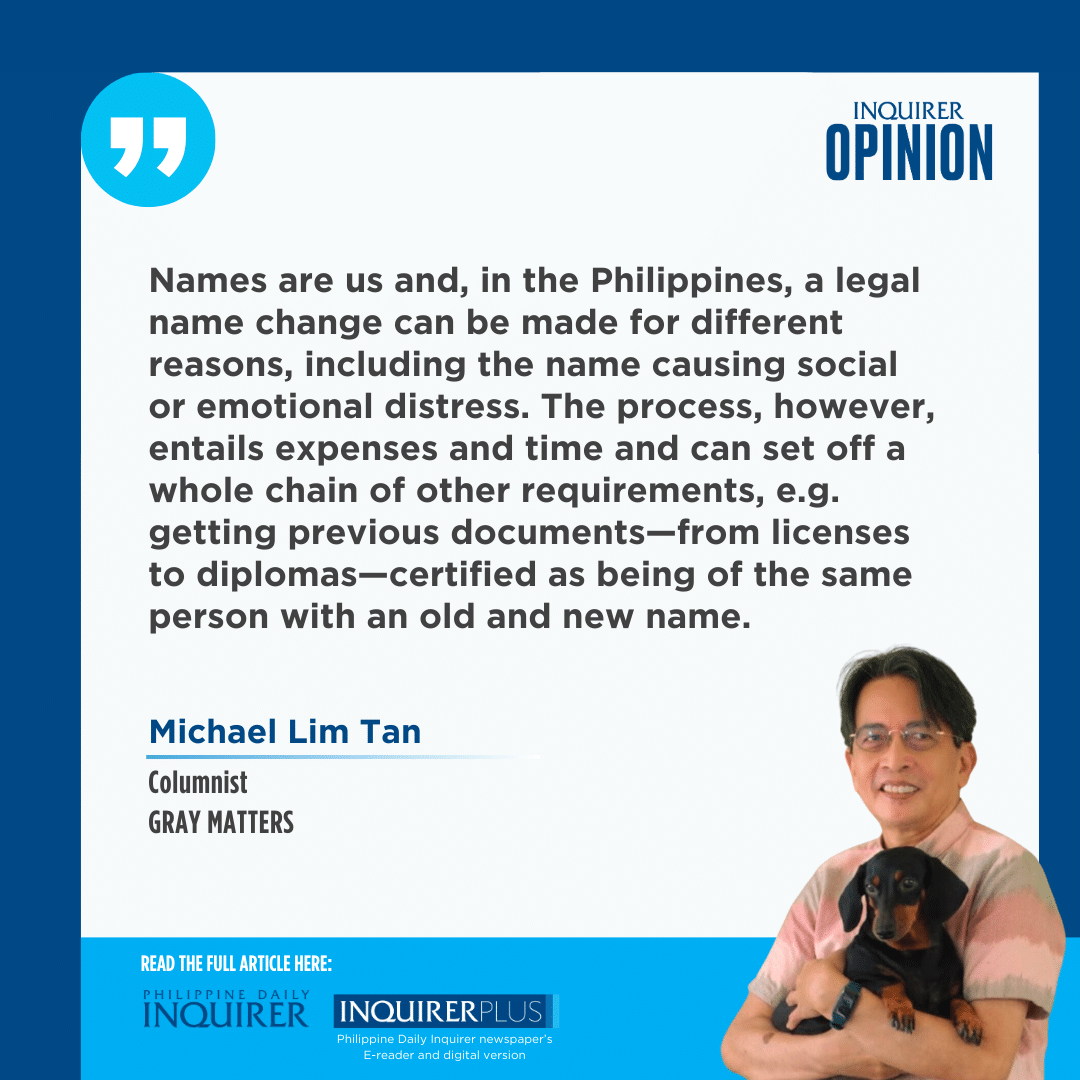Names are us
Scientists have established that elephants—at least African savannah elephants—have personalized calls for specific members of their group.
In an article published in Nature Ecology and Evolution just a few weeks ago, the researchers describe a complex project where they found that elephants would run faster and toward a “speaker” that made particular rumbling sounds that turned out to be specifically “reserved” for the individual elephant.
Article continues after this advertisementThis kind of communication was different from generic sounds found in many animal species used as general greetings or as distress signals, warning the entire herd about predators and danger.
The discovery of elephant names was picked up in papers throughout the world, reflecting how people from different cultures appreciate names. Given the many complex functions of human names and processes of naming, we might even say names are an important hallmark of being human.
Surnames are important for establishing family relationships and lineages, with laws to regulate their use. In the Philippines, for a few years after a new Family Code was adopted in 1987, children of single mothers could only be given the maternal surname. This changed in 2004 after the passage of Republic Act No. 9255, sponsored by the late senator Ramon Revilla, who had quite a number of “non-marital” (the preferred politically correct term) children.
Article continues after this advertisementSurprisingly, there are cultures where the use of surnames is optional, as in Indonesia although the legal demands of our times have pushed people to adopt surnames. We’ve also seen how surnames are tied to legal provisions around property, wealth, and even citizenship, resulting in a thriving trade in such names.
First names, on the other hand, are usually valued and treasured. A chosen name often reflects the hopes of the parents that their newborn will take after the person they admire. Names become us. There was a time when we were named after saints, so you could guess the birthday of the person knowing the feast day of the saint he or she was named after.
Gone today are the saints, replaced by celebrities who come and go. It’s been years since I’ve heard of a child being named Elvis although Madonna is still around.
Some governments, notably Iceland, Germany, Japan and China, reserve the right to approve or disapprove a name, intervening if the approving authority feels the name might embarrass the child later in life.
Countries like the United States and the Philippines are very liberal with first names, which has led to rather strange, even shocking names. In my years as a university administrator, I’ve had to sit through assemblies where lists of graduating students have to be approved and have heard many first names I can’t even type out because they border on being cruel. You wonder about the mental state of the parents who chose the names.
Names are us and in the Philippines, a legal name change can be made for different reasons, including the name causing social or emotional distress. The process, however, entails expenses and time and can set off a whole chain of other requirements, e.g., getting previous documents—from licenses to diplomas—certified as being of the same person with an old and new name.
Many years ago, I did some informal research at the Quirino Labor Hospital, a hospital mainly for indigent pregnant women, many going when they are about to deliver. The health professionals there shared many stories about poverty and motherhood, some of the women (with missing fathers) coming in with almost nothing, not even diapers.
Many also didn’t even have a name prepared for the child. The doctors and nurses would sigh and repeat their mild scolding, “The reason God made a pregnancy nine months was to give you enough time to prepare, including having a name for your child.”
I thought, maybe that’s why you have so many Filipinos at a loss for names and taking an easy way out: combining their own names. (And which led a priest friend to joke: what if the mother’s name is Concepcion and the father’s is Domingo?)
I thought I’d write this up today for my medical students, who can use a new “sermon”: Did you know even elephants give names to their young? Maternity wards should have a book or lists with baby names to help advise expectant parents. Better if this is done when the parents come in for pre-natal check-ups, long before the expected delivery.
And don’t be surprised, I’ve told medical students, if the parents ask you what your name is (nice if you have two or three to spare!) and decide it sounds good enough for the new baby.
—————
mtan@inquirer.com.ph

















